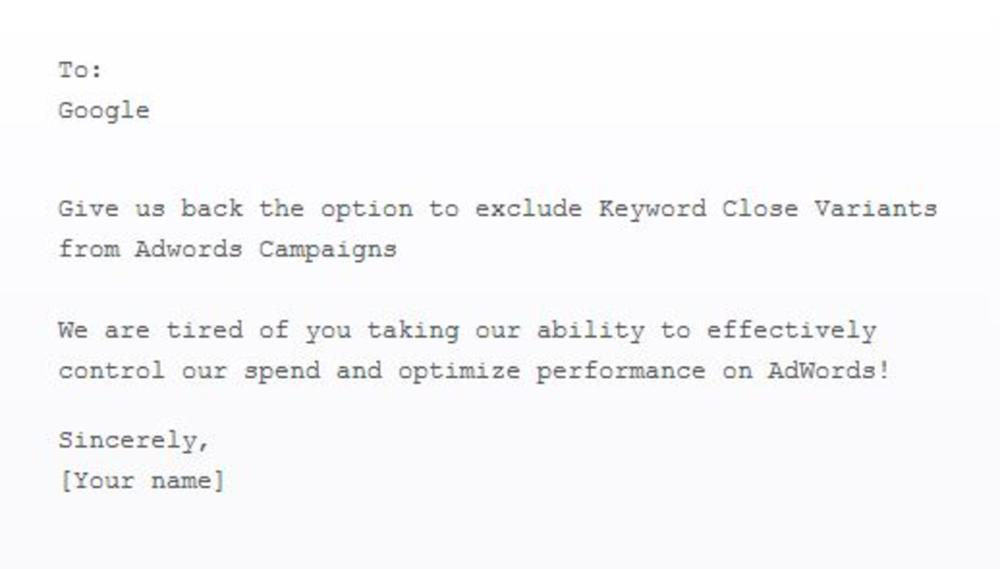A recent change Google made to its AdWords advertising tool looks like it should be beneficial to advertisers. But there’s plenty of them who would vehemently disagree.
Search marketers were up in arms about a recent update to AdWords where Google announced that it was removing the Exact Match feature. Exact Match lets advertisers place ads around very specific keywords. That means that an advertiser’s ad will only display when a certain term is typed into Google search. This allows advertisers to exclude misspellings, or close variations of the word.
For example, if I’m a local bakery specializing in macarons, I could buy an ad to show up whenever someone types in “macarons in San Francisco.” Using Exact Match, I could exclude the ad from showing up when someone types in an incorrect spelling, such as “macaroons” (which is an entirely different type of pastry.) This allows advertisers to save money by having their ad display only when very specific terms are typed.
However, Google says no more. It is removing the Exact Match feature and will now display your ad whenever somebody types in “macarons,” “macaroons” or “maccarons.” On the surface, that looks like a good thing. You automatically get your ad shown more times to people, in relation to more search terms, and conversely this leads to more people discovering your business. However, as most advertisers noted, this could mean you spending more money than you want, and losing control over the search terms your ad shows up for.
For example (to quote a crude old SNL joke) you definitely want an ad for your therapy business to show up in a Google search for “Therapist,” but definitely not “the rapist.” Google might see that as a honest typing mistake and display your ad in both cases. While that might be going too far, it’s an example of the lack of control advertisers will have over what search terms will trigger their ad.
As you can imagine, search marketers are definitely not happy:
I like @ajkohn‘s quote on http://t.co/RRcXSpHvGS “A big middle finger to those sophisticated enough to use exact/phrase match campaigns”
— Rand Fishkin (@randfish) August 15, 2014
Anyone else sick of @adwords taking control away from advertisers and acting like they’re doing us a favor? #PPCchat http://t.co/40BTJzazrf
— Noah J. Brooks (@noahbrooks) August 15, 2014
Terrible idea by @adwords Less control = worse results > Close variant matching for all keywords > http://t.co/wVC9K4JELY
— Brad Geddes (@bgtheory) August 15, 2014
In addition to some heavy criticism on Twitter, some marketers even created a petition on Change.org ordering Google to reverse the update:
For its part, Google says it is offering advertisers “control with less complexity.” In an AdWords blog post, the company writes:
With this update, you no longer have to build exhaustive lists of misspelled, abbreviated, and other close variations of your keywords to get the coverage you want. Instead, focus on adding negative keywords–including close variants you don’t want to match for–to shape traffic and reduce cost. This can improve your campaigns’ ROI and help deliver a better ad experience for your customers.






